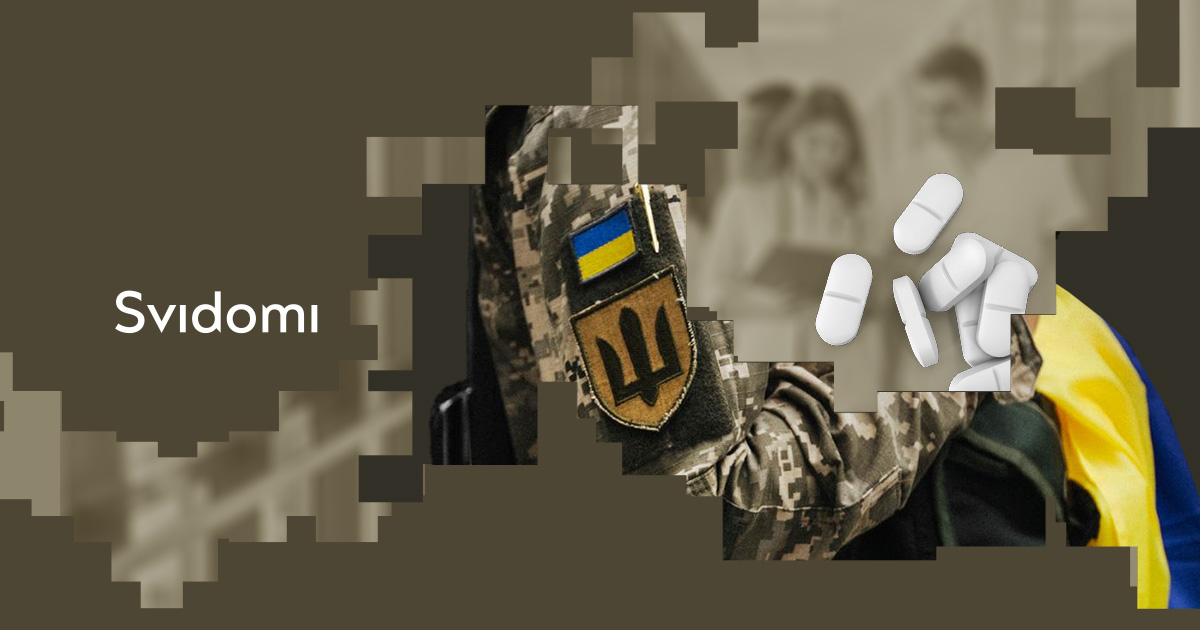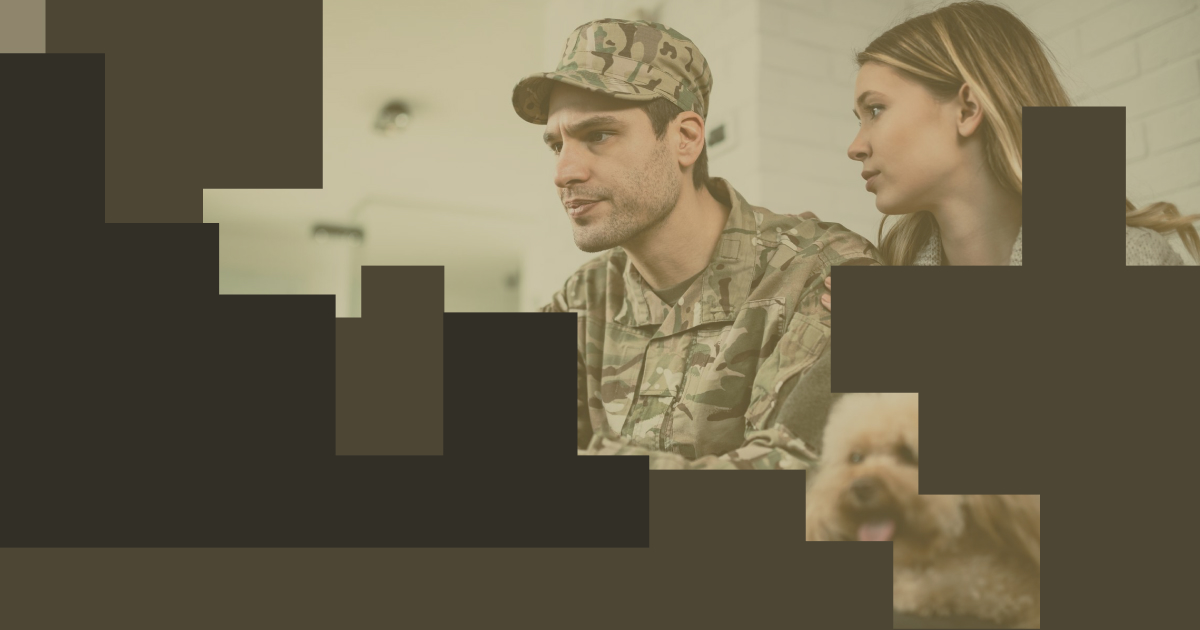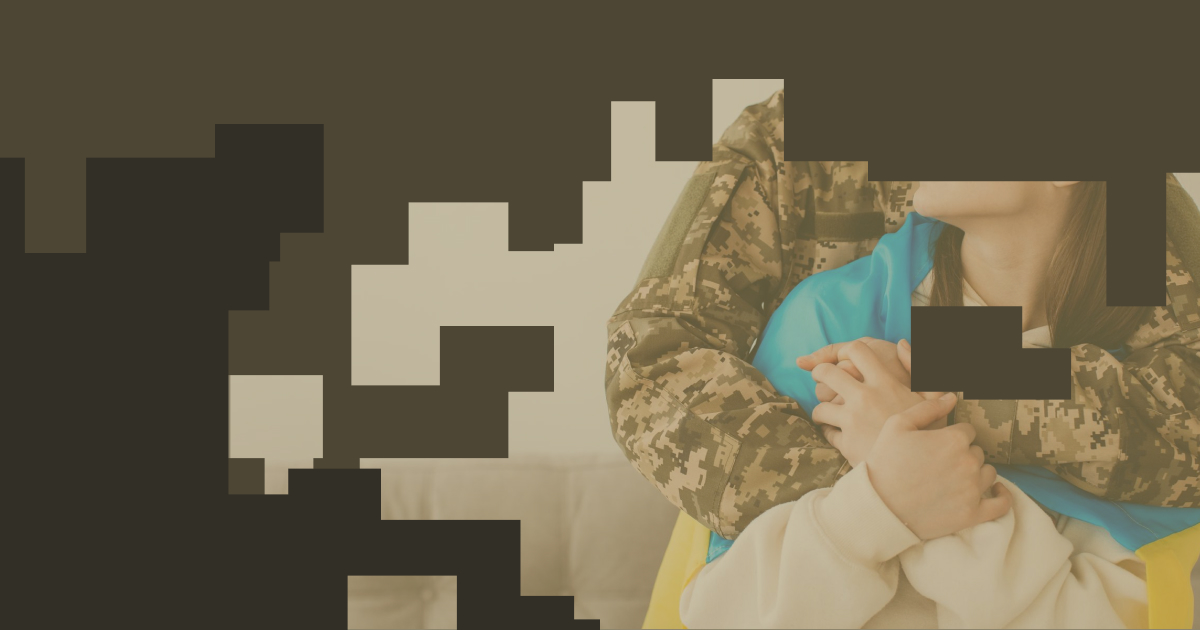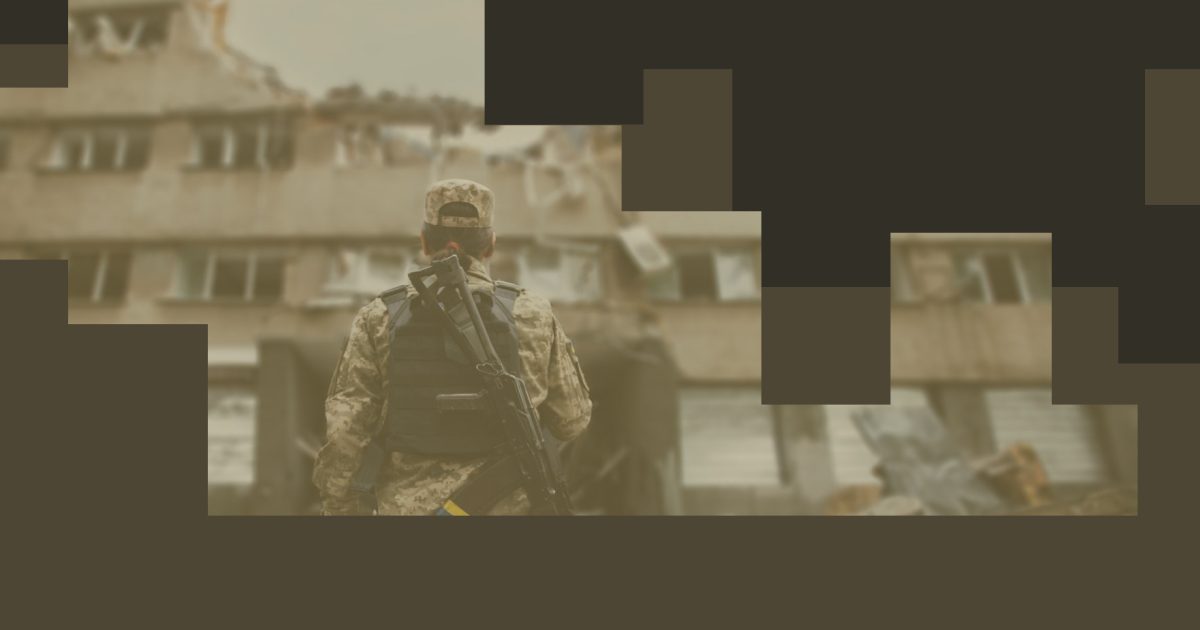I can't go to war, I don't want civilian life: How to help soldiers stuck in the middle

There are times when some military personnel cannot stay in the army for one reason or another. At the same time, they cannot fully return to civilian life — both because of the system and for personal reasons.
This results in a feeling of being stuck in the middle. Svidomi talked to psychologist Pavlo Dzikovskyi and case managers of the Veteran Hub about how the soldiers' families can understand and help them.
Not the same person
Pavlo Dzikovskyi, a psychologist and professor at the Department of Psychology and Psychotherapy at the Ukrainian Catholic University, explains that from the point of view of a person who has been at war, our perception of a peaceful, comfortable, and prosperous life is different. After all, the experience of war alters one.
"There is a certain limit, and there is no going back. A person cannot go back to the world where there is no war. Our mistake is that when we talk about the adaptation of people who took part in hostilities or were under shelling, we believe that it is enough to process this experience, and the person will return to the state they were in before the war. But we can't bring back the 'normalcy' that existed before the war," he says.
Back in 2014, when Dzikovskyi was working with the military, he noticed that when people returned from the war, they faced misunderstanding from others. Relatives and friends believe that the soldiers should return as they were before. However, such expectations can be an additional factor of trauma.
"They may feel lonely and misunderstood. The only way for them [to adapt] is to find their place in the world they returned to. This may be accompanied by changes in their relationship [with their partner] or a change in their job," the psychologist explains.

Society forgets the military's merits
Veteran Hub case manager Illia Shleniov is not sure that post-war adaptation problems can be considered a common phenomenon, but adaptation difficulties can often occur. One of the main reasons, in this case, is the formation of new patterns of behaviour and ways of thinking that are appropriate for combat conditions but lose their meaning in civilian life.
"The things that used to help you survive and maintain your mental and physical health can, on the contrary, harm and interfere with normal life in new circumstances. The social context in which a soldier finds themself also plays a significant role. If during the war they felt their significance and value, in peacetime this may change," he says.
According to Shleniov, society tends to forget about the merits of the military and not give them enough credit. For this reason, a veteran may feel disappointed and frustrated.
"It is important whether the veteran fits into the new context from a functional point of view. Can they find a civilian activity that will give them a sense of fulfilment and meet their needs? Can they find a group of people where they feel comfortable?" explains the case manager.
Another factor in the military's maladjustment can be traumatic experiences and their consequences, as well as whether they receive proper psychological help and social support.
"Professional help is especially important in this case, as the traumatic experience that a veteran may share needs to be properly managed and processed to avoid retraumatisation," explains Illia Shleniov.
Accepting yourself as a veteran
Anastasiia Prystula, who also works with veterans at Veteran Hub, explains that it is important to understand that when we talk about the impossibility of returning to the frontline, there are probably objective reasons for this, such as injury, but the desire to protect and be a soldier remains.
"The process of adapting to civilian life will be complicated by the need for preliminary work to understand one's capabilities and limitations. The process of adaptation, both psychological and social, is quite long and often not linear. Ideally, it starts with identifying oneself as a veteran rather than military personnel, but this is where the first difficulties can arise," says Prystula.
These difficulties arise because the role of a soldier is quite obvious and often even regulated in detail, while what it means to be a veteran is a vague concept. Often, priorities and life values can change during service, and the civilian employment or social circle that a person had before the service is no longer relevant.
"It takes time to find new meanings, make new plans, and put down new roots. It is not uncommon for veterans to create or join organisations, businesses, or volunteer initiatives related to the army or military personnel, fulfilling their desire to be useful in the rear, using the knowledge, skills, and social connections they have acquired [during their service]," the case manager explains.

How to help?
According to Pavlo Dzikovskyi, there is no universal mechanism for how to act when a person finds it difficult to find their place after the war. However, it is important to understand the person's state of mind.
"Perhaps this person wants to be alone. Then they should be allowed to be alone. If the person needs communication and requests it, you need to communicate with the person. If they want to tell you about their experience, you just need to listen without judgement or giving advice. It's important to be there, to try to feel the person's emotions," says the psychologist.
The phrase "everything will be okay" does not work
Anastasiia Prystula explains that when it comes to your family members or loved ones, the best tactic when they cannot find themself after returning to civilian life is to provide support based on a mutually respectful attitude, where the boundaries of neither party are violated.
"Be there for them, give them time and space for self-determination, and don't rush them in this process. Remember that your expectations are only your expectations. Talk through difficult moments, offer help, and don't take rejection as a personal insult. Ask how you could be of help, be honest and open," says the case manager.
In her opinion, if your loved one does not know how to start communication, you could say: "You are important to me, and I would like to be closer to you, but I don't quite know how to do it right. Let's try, is it okay for you to talk about this topic...?"
Anastasiia Prystula also recommends not judging a person's experience, not devaluing their feelings, and not making promises that are not in one's control.
"The phrase 'everything will be okay' does not work, do not blame them for the past, accept the person as they are. It can be exhausting to be around someone who needs support. You should also take care of your own resources and their restoration. Be attentive to your well-being because it is impossible to be helpful when you are exhausted," she recommends.
Avoid clichéd phrases
Illia Shleniov says there is no need to be pushy and force a soldier to share their feelings and experiences.
"Every soldier may have their own reasons for not sharing their experiences with loved ones. This is normal, and it should be accepted as a kind of personal boundary," he says.
When listening to a veteran, you should not look for the objective but rather focus on the subjective part of the story. Here, you should not try to pinpoint inaccuracies in the conversation.
"First of all, you need to capture the emotion that is put into the story, to capture what exactly they want to say. You should avoid clichéd phrases like "I understand you." This can cause a negative reaction," explains Shleniov.
People who have no experience working with veterans should not resort to "amateur psychotherapy." It is enough to listen, to make it clear that they are heard. Otherwise, it can lead to retraumatisation.
"If necessary, one should seek professional help. You cannot replace psychotherapy for a loved one. But that doesn't mean you should avoid this person. Let them know you are there for them and ready to help," adds Illia Shleniov.



